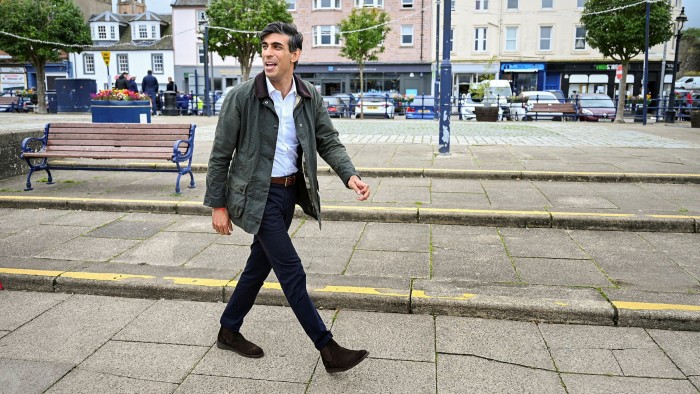Private equity says payouts levy rise would drive industry out of UK

Roula Khalaf, Editor of the FT, selects her favourite stories in this weekly newsletter.
Private equity firms are to warn the UK government that higher taxes on their executives’ lucrative payouts would drive dealmakers out of the country.
A private document circulated late last month to members of the British Private Equity & Venture Capital Association, a trade body, outlines how the industry plans to lobby against tax rises on so-called “carried interest,” the multi-million-pound profit shares that dealmakers can receive from their funds.
The move comes after UK chancellor Rishi Sunak asked the independent Office for Tax Simplification to review capital gains tax this summer, as the government seeks to fill the deficit created by coronavirus support measures.
For some private equity executives, carried interest payments amount to vast sums worth multiples of their annual income. They are classed as a capital gain rather than income, meaning that they are taxed at 28 per cent, instead of the 45 per cent top income tax rate that many private equity executives pay on their salaries.
The current regime for carried interest is “very important for the private equity and venture capital industry,” the BVCA’s document said. It is “important that any tax changes do not undermine the government’s clearly stated policy of developing the UK as an attractive location for the asset management industry.”
The “boundary between income and capital,” which means carried interest payouts are taxed at a lower rate than income, “is conceptually drawn in the right place,” the note added.
The BVCA confirmed the contents of the document and declined to comment further.
The trade body’s stance is a sign of the opposition the UK government would face over any move to raise tax on some of the wealthiest people in Britain in the wake of the coronavirus pandemic. The crisis has triggered vast government expenditure and provoked a debate in the Conservative party about how and when that money should be repaid.
The BVCA document is an early indication of how the private equity industry is preparing to respond to the OTS, which is running a consultation on capital gains tax until October.
Arun Advani, an academic at the University of Warwick, said taxing carried interest at the same rate as income would “level the playing field” between private equity and other parts of the UK’s financial sector.
“Private equity is the only part of the UK’s financial industry that gets access to these lower tax rates for individuals,” he said. “So it would make sense for a government committed to supporting everyone in the financial sector to tax it at the same rate as income.”
A letter from Mr Sunak to the OTS in July asked it to consider “the interactions of how [capital] gains are taxed compared to other types of income.”
That has led to concern among private equity executives that their payments, known in the industry as “carry,” could be taxed at the same rate as their income.
Low tax rates on carried interest in much of Europe and the US have over the past three decades helped to create a crop of private equity billionaires who in many cases have paid lower tax rates than their cleaners.
The current 28 per cent tax in the UK was introduced in 2015, an increase from an 18 per cent rate that was introduced in 2008.
Comments